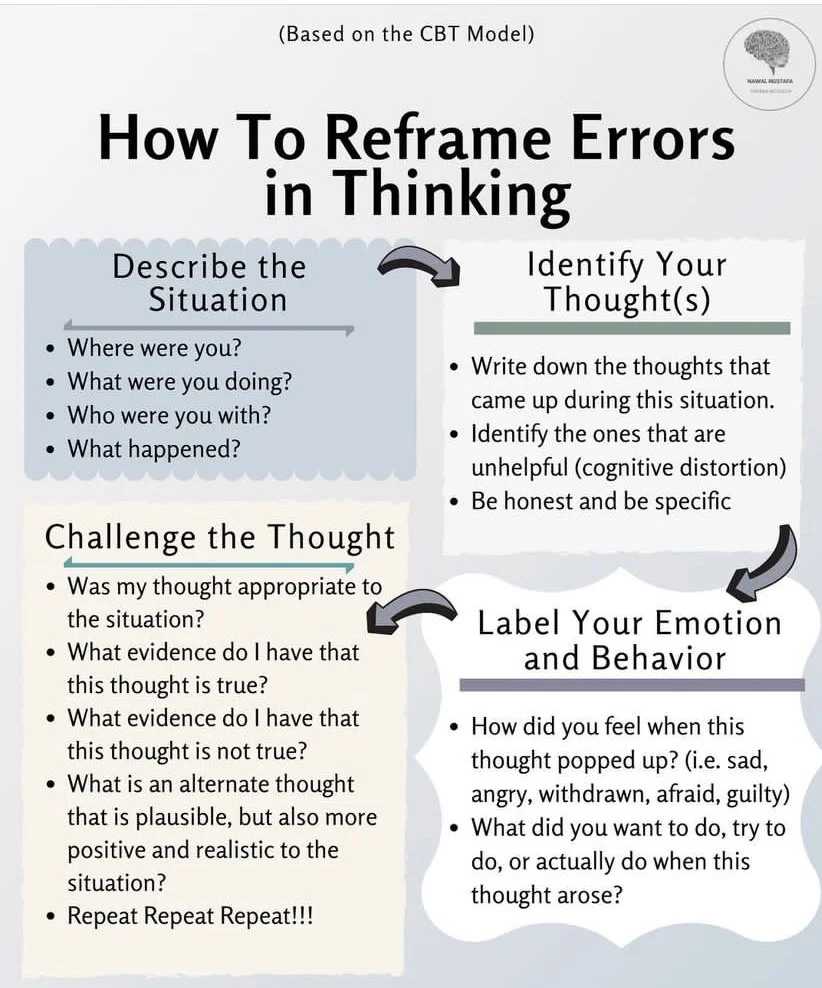Battling Negative Automatic Thoughts
WHY WE HAVE AUTOMATIC NEGATIVE THOUGHTS
There are two main reasons why we have automatic negative thoughts:
1) They exist to keep you safe. Having negative thoughts is perfectly normal. (So you can stop beating yourself up for having them). Our prehistoric ancestors survived by constantly being on the lookout for threats, fixing problems as they arose, and then learning from their mistakes.
Imagination is one of the best qualities of the human mind and we use it to imagine potential threats and problems. This enables us to solve problems before we get into trouble.
2) You may have so many automatic negative thoughts because your negative thinking has become a habit. 90% of all thoughts are repetitive. You will have almost the same thoughts today that you had yesterday. If you do something often enough, including thinking negative thoughts, you create a neural pathway. The more you do it, the stronger the connections in the brain become.
Automatic thoughts have the potential to trigger intense negative emotions. Usually, we are more aware of the emotions themselves than the thoughts that trigger them. However, in most cases, it is the automatic thoughts that dictate how we feel, not the situation itself. Learning to examine these thoughts allows us to better understand and deal with our emotions.
QUESTIONS TO HELP FIND EVIDENCE AGAINST YOUR NEGATIVE AUTOMATIC THOUGHT:
* Have I had any experiences that show that this thought is not completely true all the time?
* If my best friend or someone I loved had this thought, what would I tell them?
* If my best friend or someone who loves me knew I was thinking this thought, what would they say to me? What evidence would they point out to me that would suggest that my thoughts were not 100% true?
* When I am not feeling this way, do I think about this type of situation any differently? How?
* When I have felt this way in the past, what did I think about that helped me feel better?
* Have I been in this type of situation before? What happened? Is there anything different between this situation and previous ones? What have I learned from prior experiences that could help me now?
* Are there any small things that contradict my thoughts that I might be discounting as not important?
* Five years from now, if I look back at this situation, will I look at it any differently? Will I focus on any different part of my experience?
* Are there any strengths or positives in me or the situation that I am ignoring?
* Am I jumping to any conclusions that are not completely justified by the evidence?
* Am I blaming myself for something over which I do not have complete control?
Here are some great PDF’s that will help you to work with your negative automatic thoughts:
Changing Your Critical Self Talk
Are you interested in working on your personal development? Are you looking for a life coach or a life consultant? Are you feeling stagnant? Do you want to jumpstart change?
My transformational approach is a process where awareness, alignment, and action work together as catalysts to create momentum for change.
*Awareness is knowing what you genuinely want and need.
*Alignment is the symmetry between our values and our actions. It means our inner and outer worlds match.
*Action is when you are conscious that what you say, do and think are in harmony with your values.
Together we build an understanding of what you want to accomplish, and delve deeply into building awareness around any thoughts and assumptions that you may already have. To truly transform your life, I will empower you to rethink what’s possible for you.
__
Learn more about my approach to life consulting and relationship coaching here or get in touch for your free 30-minute consultation here! Don’t forget to follow along @LilyManne on social for more regular updates!


